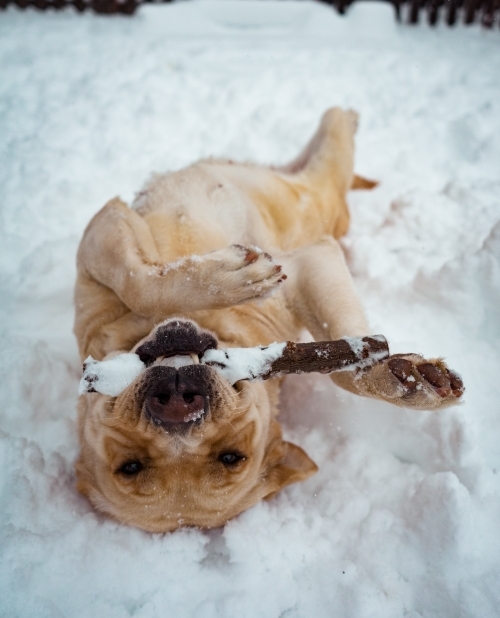Minnesota Zoo is urging pet owners to “scoop their pet’s poop,” even in the winter months, to avoid the contamination of local waterways. According to experts, the animal waste contains nitrogen and phosphorous, which can deplete oxygen levels in the water and harm aquatic life. Pet waste may also contain bacteria and other pathogens that can cause disease. The Zoo urged pet owners to dispose of pet waste properly in the trash and not to compost it, as it can contain disease-causing pathogens that can be passed to humans.
One of the important actions to take? Scoop the poop! The Minnesota Zoo Backyard Wildlife Hero program encourages people to adopt simple but impactful behaviors to help protect wildlife in their backyards.
Why Scooping Poop Matters
Dog waste is not only unsightly and smelly; it can also be dangerous for wildlife. When left on the ground, dog poop can harbor harmful bacteria and parasites that can infect native wildlife, such as birds and small mammals. This can result in illness, decreased fertility, and even death.
Additionally, poop left on the ground can attract predators such as coyotes and foxes, which prey on small animals. When dog poop is removed, these predators are less likely to become a nuisance in residential areas.
Scooping Poop is Easy
Scooping poop is a simple task that can quickly become a habit. When walking your dog, please bring a plastic bag or two, and pick up your dog’s waste as soon as they finish. Be sure to tie the bag securely and dispose of it in a designated waste bin (don’t leave it on the ground!).
If you have a fenced yard, it’s still essential to scoop poop regularly to prevent buildup. This can be done with a pooper scooper or a plastic bag.
Get Your Neighbors on Board
Encouraging your neighbors to scoop their dogs’ poop can have an even more significant impact on local wildlife. Consider organizing a neighborhood cleanup event or contacting your local government to install more waste bins in public areas.
If someone is reluctant to scoop their dog’s poop, educate them on the potential harm it can cause wildlife and suggest alternative solutions, such as using a compostable bag or flushing the waste down the toilet (after removing any plastic bag).
Be a Backyard Wildlife Hero
Scooping poop may seem small, but it can make a big difference in protecting wildlife. By taking responsibility for your pet’s waste and encouraging others to do the same, you can help create a safer and healthier environment for animals in your backyard.
In addition to scooping poop, you can take many other actions to be a backyard wildlife hero—reduce your use of pesticides and herbicides, which can harm beneficial insects and other wild—plantlet native plants to attract pollinators, such as bees and butterflies. And keep your cats indoors – this protects them from outdoor dangers and prevents them from hunting and killing native wildlife.
The Minnesota Zoo Backyard Wildlife Hero program encourages everyone to take small steps to protect and support wildlife in their backyards. Working together can create a better world for all animals to thrive.


